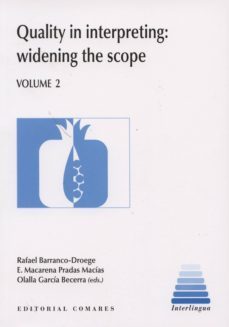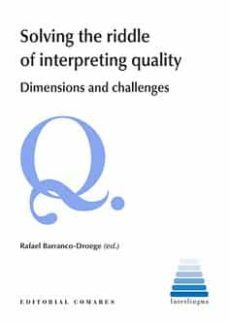Imprescindibles
Ficción
No Ficción
Ciencias y tecnología Biología Ciencias Ciencias naturales Divulgación científica Informática Ingeniería Matemáticas Medicina Salud y dietas Filología Biblioteconomía Estudios filológicos Estudios lingüísticos Estudios literarios Historia y crítica de la Literatura
Humanidades Autoayuda y espiritualidad Ciencias humanas Derecho Economía y Empresa Psicología y Pedagogía Filosofía Sociología Historia Arqueología Biografías Historia de España Historia Universal Historia por países
Infantil
Juvenil
#Jóvenes lectores Narrativa juvenil Clásicos adaptados Libros Wattpad Libros Booktok Libros de influencers Libros de Youtubers Libros Spicy Juveniles Libros LGTBIQ+ Temas sociales Libros ciencia ficción Libros de acción y aventura Cómic y manga juvenil Cómic juvenil Manga Shonen Manga Shojo Autores destacados Jennifer L. Armentrout Eloy Moreno Nerea Llanes Hannah Nicole Maehrer
Libros de fantasía Cozy Fantasy Dark academia Hadas y Fae Romantasy Royal Fantasy Urban Fantasy Vampiros y hombres lobo Otros Misterio y terror Cozy mistery Policiaca Spooky Terror Thriller y suspense Otros
Libros románticos y de amor Dark Romance Clean Romance Cowboy Romance Mafia y amor Romance dramatico Romcom libros Sport Romance Otros Clichés Enemies to Lovers Friends to Lovers Hermanastros Slow Burn Fake Dating Triángulo amoroso
Cómic y manga
Novela gráfica Novela gráfica americana Novela gráfica europea Novela gráfica de otros países Personajes, series y sagas Series y sagas Star Wars Superhéroes Cómics DC Cómics Marvel Cómics otros superhéroes Cómics Valiant
eBooks
Literatura Contemporánea Narrativa fantástica Novela de ciencia ficción Novela de terror Novela histórica Novela negra Novela romántica y erótica Juvenil Más de 13 años Más de 15 años Infantil eBooks infantiles
Humanidades Autoayuda y espiritualidad Ciencias humanas Economía y Empresa Psicología y Pedagogía Filosofía Historia Historia de España Historia Universal Arte Cine Música Historia del arte
Ciencia y tecnología Ciencias naturales Divulgación científica Medicina Salud y dietas Filología Estudios lingüísticos Estudios literarios Historia y crítica de la Literatura Estilo de vida Cocina Guías de viaje Ocio y deportes
RAFAEL BARRANCO DROEGE
Recibe novedades de RAFAEL BARRANCO DROEGE directamente en tu email
Filtros
Del 1 al 2 de 2
COMARES 9788490450819
Interpreting quality is conditioned by a myriad of factors, and going back to basics every now and then may help in asking the right questions. Moreover, the advancement of an applied science such as interpreting studies makes it indispensable to stop and check periodically whether the communication between research, training and professional practice is flowing properly.With this in mind, in the context of the Second International Conference on Interpreting Quality, held in 2011 in Almunecar, Spain, it was decided to open a forum to allow participants to share their ideas with a broader audience. The result is a collection of interesting contributions developed from a variety of methodological perspectives, dealing with topics ranging from interpreter training to professional practice and including both spoken and signed languages.From the perspective of interpreter training, the papers address topics such as the implementation of interpreting theory, ethics, mindfulness and the importance of visual input for simultaneous interpreting. The contributions related to professional practice focus on aspects like anticipation in simultaneous interpreting, the transfer of specialized knowledge and the constraints imposed by the market, while the assessment of interpreting skills received special attention as a cross-sectional topic. It is the editors hope that this volume will encourage further investigation in these areas.TRADUCCION.Este libro esta condicionado por multitud de factores que se remontan a los origenes. Por otra parte, el avance de una ciencia aplicada, como los estudios de interpretacion hace que sea indispensable para detener y comprobar periodicamente si la comunicacion entre la investigacion, la formacion y la practica profesional esta fluyendo correctamente.Con esto en mente, en el marco de la Segunda Conferencia Internacional sobre la Calidad de Interpretacion, que se celebro en 2011 en Almuñecar, España, se decidio abrir un foro para que los participantes puedan compartir sus ideas con una audiencia mas amplia. El resultado es una coleccion de interesantes aportaciones desarrolladas a partir de una variedad de perspectivas metodologicas, que se ocupan de temas que van desde la formacion de interpretes a la practica profesional y que incluye las dos lenguas que se hablan.Desde la perspectiva de la formacion de interpretes, los trabajos abordan temas tales como la aplicacion de la teoria de la interpretacion, la etica, la atencion y la importancia de la informacion visual para la interpretacion simultanea.Las contribuciones relacionadas con la practica profesional se centran en aspectos como la anticipacion en la interpretacion simultanea, la transferencia de conocimientos especializados y de las limitaciones impuestas por el mercado, mientras que la evaluacion de las habilidades de interpretacion ha recibido la atencion especial como un tema transversal. Los editores esperan que este libro anime y provoque asi una mayor investigacion en estas areas.
Ver más
Otros
COMARES 9788490459140
nterpreting is a complex phenomenon with semiotic, cognitive, and social dimensions. The second half of the 20th century witnessed increasing professionalization in this field, and in recent years, market conditions have been evolving rapidly. Communication has become faster and more technical, information and communication technologies have empowered users and altered workflows, societies are undergoing unforeseen transformations, and language regimes are changing, both in terms of diversification and of the use of lingua francas.The challenges and opportunities associated with these developments call for a reframing of quality assessment and assurance. Output-focused research is being joined by investigation on cognitive and social processes, the various subfields of interpreting studies are beginning to gel, and research is becoming more interdisciplinary. This volume offers a glimpse of the stimulating research on interpreting quality made possible by the collaboration of scholars, trainers, and practitioners
Ver más
Tapa dura
Del 1 al 2 de 2























